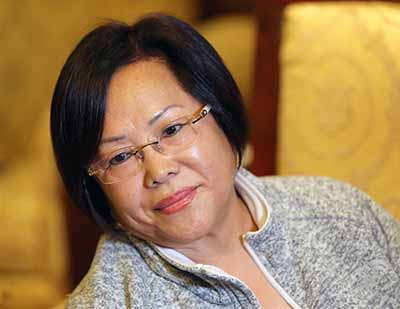
A former government official suspected of corruption who fled to the United States returned to China on Saturday with Washington’s cooperation, the ruling Communist Party said.
Huang Yurong, a former highway agency boss in the central province of Henan, came back after “persuasion” by Chinese authorities, the party’s internal disciplinary body said on its website.
Several people Beijing has accused of corruption have returned from the US to China in recent months, despite the two countries lacking an extradition treaty.
Most Western countries do not have such an agreement with China, where courts are controlled by the Communist Party and the use of force to extract confessions is believed to be common.
Huang fled China in 2002, and her return was arranged with “US cooperation”, the disciplinary agency statement said, citing the work of a joint law enforcement group.
It quoted Huang as saying on her arrival in Beijing that she “believes that her choice of returning to the motherland is right” and “promises to cooperate with judicial departments”.
China’s President Xi Jinping has said that rampant corruption threatens the party’s grip on power and has launched a high-profile anti-graft campaign.
It includes an effort known as “Sky Net” aimed at repatriating alleged corrupt officials who have fled abroad.
The push has raised concerns after reports China had dispatched law enforcers to other countries to pressure suspects into returning, without notifying overseas governments.
China said in September that the US had repatriated “economic fugitive” Yang Jinjun days ahead of a trip by its president to Washington.
There is no legal oversight of the Communist Party’s internal disciplinary investigations, which deny corruption suspects access to attorneys.
Rights groups say the use of torture in anti-corruption cases is common and state-run media said last year that the use of force to extract confessions by police was “not rare”.
The death penalty is available for some corruption cases in China.



